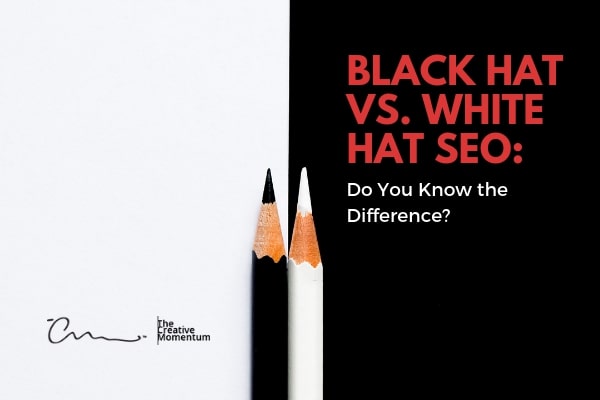
In the old Western movies and TV shows, it was easy to tell the good guys from the bad guys. The heroes wore white hats (Exhibit A: The Lone Ranger), and the villains wore black hats. Right?
Well, not so much. It turns out that a comprehensive look at the Western film genre shows that there was actually no consistency in this regard. There were good guys wearing black and bad guys wearing white. But for some reason, we as a culture have made this literal black-and-white distinction.
So much so, in fact, that we now use the terms “white hat” and “black hat” to distinguish benevolent vs. malevolent intent in other areas. The prime example is found in cybersecurity. “Black hat” hackers are the bad guys who try to infiltrate computer systems and networks, steal data, and make life generally miserable for people. “White hat” hackers are the ones who try to find system vulnerabilities and report them so they can be patched before the black-hat hackers can exploit them.
Black Hats, White Hats, and SEO
Lately, the black hats and white hats have cropped up in the world of SEO. You might have thought that SEO is SEO is SEO, but it turns out that there’s the right (read: “ethical”) way to do SEO and a wrong way. Determining which one wears which hat is left as an exercise for the reader.
Before we get into the difference, let’s review what SEO is all about in the first place. In a nutshell, SEO is the set of techniques and best practices in web design and content that optimizes a site’s ranking in search results. Over time, as search engine ranking algorithms evolve, so too do SEO strategies and practices.
So besides the choice of hat color, what’s the difference between the two types?
What is Black Hat SEO?
Let’s start with black hat SEO. Black hat SEO can be thought of as any attempt to game the system—that is, to artificially inflate a site’s search result rankings. Let’s look at some examples:
- Keyword stuffing: Keyword stuffing is the practice of including dozens or hundreds of commonly searched keywords, often unrelated to the site’s actual purpose, in the content or metadata of the site’s pages.
- Markup tactics: Similar to keyword stuffing, this technique uses irrelevant, inaccurate, or misleading tags and markup to convey to web crawlers that there is more content on a site than there actually is.
- Link schemes: It’s well known that search engines boost a site’s ranking in part on the basis of how many links point to it from other sites. Link schemes attempt to artificially boost the number of these links.
- Cloaking: This is the practice of having two versions of each web page: one for web crawlers and one for humans. The web-crawler version is “optimized” to boost ratings more than the human-consumption version would.
- Automated content and link generation: This is the practice of using programs or scripts to generate content and links that are useless to human website visitors but supposedly increase search rankings.
In addition, tactics such as smear campaigns aimed at a competitor’s site, or hacking other sites to add links to one’s own site, fall in the black hat SEO category.
Black hat SEO techniques are unethical because they use deception to artificially increase search result rankings. Although these tactics may provide short-term advantages in search results, eventually the search engines will get wise and figure out what’s going on. Using any of these tactics (among many others) is grounds for having a site de-indexed so it doesn’t show up in search results at all. To coin a phrase, engaging in black hat SEO will get you blacklisted.
What is White Hat SEO?
It’s tempting to define “white hat SEO” as “anything that isn’t black hat SEO,” but there’s more to it than that.
The principle of white hat SEO is that it should be organic in nature, meaning that your site’s ranking for a given search term or phrase should be based on what your site is actually about and reflect your site’s actual relevance to that search term in relation to other sites. All businesses naturally want their sites to be on that precious first page of search results (almost no one browses past that first page). If your site isn’t as high on the search results as you’d like, there are legitimate ways to boost your ratings without resorting to black hat tactics:
- Content, content, content: Content is king, especially fresh, long-form content. There’s a reason why sites have blogs or other features that are frequently updated with new content: It’s not because their owners have nothing better to do; it’s because they know it’s the key to consistently ranking high in search results. Content is hard; it’s especially difficult to find new ways to convey the same message over and over. But it’s the best way for your customers to find you on the web.
- Appropriate use of keywords: Keywords still have an important place in SEO strategy. But they need to be relevant to the content and to the search terms that visitors are likely to use. Proper keyword analysis will show you what keywords to focus on.
- Intuitive site organization: Good site organization makes it easy for both human users and web crawlers to find what they need on your site. Not only should the pages be easy to find, but the content within each page should be easy to parse, which means thoughtful wording and use of titles, section headings, and bulleted lists (like this one).
- Social media: Appropriate use of social media channels is a good way to generate those important backlinks to your site. Attract and retain some followers and the links will come naturally.
These and other organic approaches will set you on the path to white hat SEO.
Both Google and Bing publish guidelines on how to do SEO in a proper and ethical manner, and the guidelines are unsurprisingly similar in their admonitions on what to do and not do with regard to SEO. Although they don’t provide details on their proprietary algorithms, the do have solid advice on how to optimize your site for search.
The basic message is: Websites are for humans. Optimize them for human consumption. Make your site stand out from the crowd by applying time-honored market differentiation strategies to your site. The SEO will follow.


